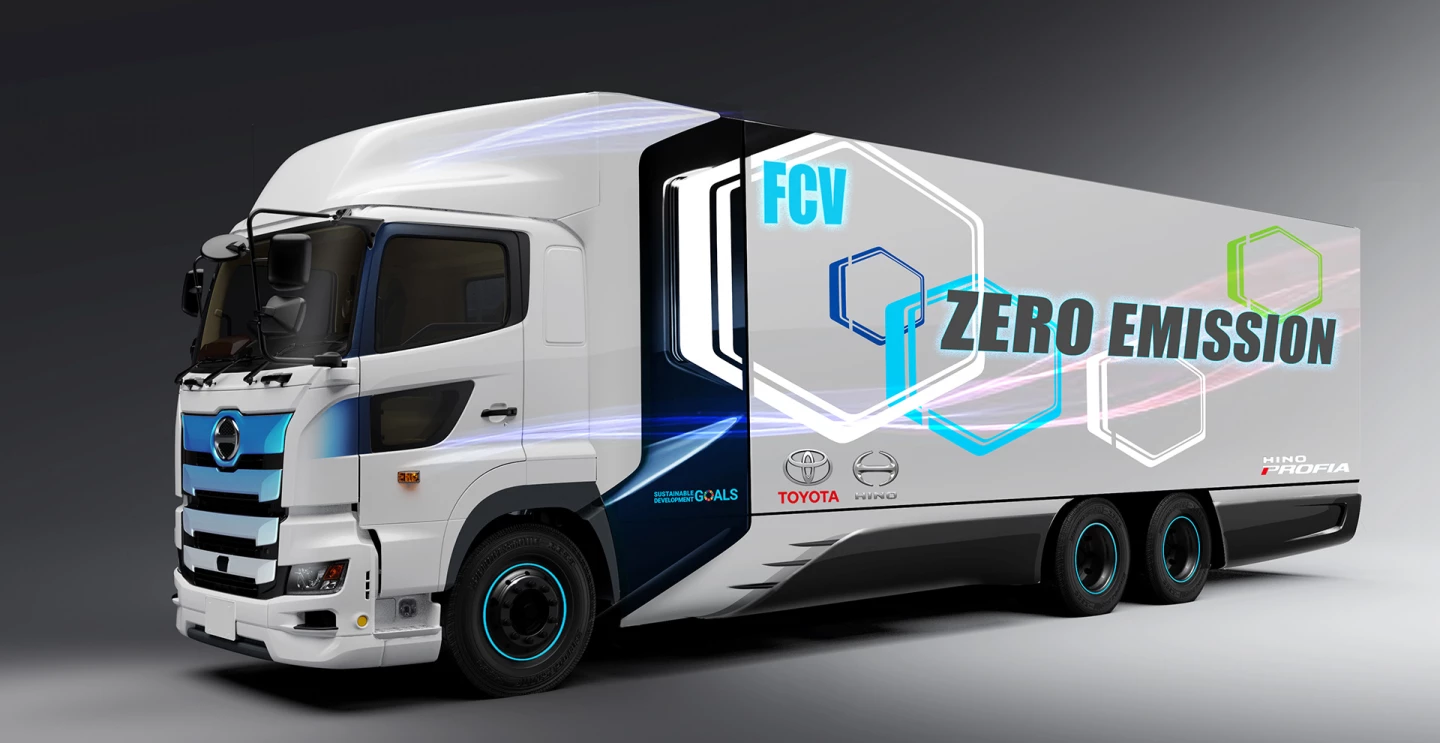Having put hydrogen-fuel-cell-powered trucks to the test around ports in Los Angeles over the past few years, Toyota has now announced plans to take the technology further afield. The Japanese auto giant has teamed up with truck subsidiary Hino to develop a Class 8 fuel cell electric truck (FCET) for the North American market.
Breaking new ground with the introduction of the Prius gasoline-electric hybrid in 1997, Toyota began testing a hybrid hydrogen fuel cell vehicle just three years later. That technology hasn't yet taken off like hybrid of battery electric vehicles have, but Toyota is one of a number of major players betting big on hydrogen, which it sees as the answer to the electrification of big rigs.
The Toyota and Hino collaboration will see the former's fuel cell technology paired with the latter's newly developed Hino XL Series chassis, which is a conventional cab truck usually powered by an 8.9-liter A09C six-cylinder diesel engine, capable of outputting up to 360 hp and 1,150 lb-ft (1,559 Nm) of torque.
This follows on from a similar collaboration earlier this year in which Toyota and Hino announced plans to build a 25-ton FCET for the Japanese market. The first demonstration vehicle from that initiative is set to be on the road in the first half of 2021. Although there's no indication of when we can expect to see a demonstration vehicle from the latest collaboration, we shouldn't have to wait too long.

"Expanding upon our proud heritage of the Hino powertrain, Toyota Fuel Cell Technology offers our customers a commercially viable, extended range, zero emissions vehicle in the near term," says Glenn Ellis, Hino's Senior Vice President Customer Experience.
"A fuel cell powered version of the Hino XL Series is a win-win for both customers and the community," adds Tak Yokoo, Senior Executive Engineer, Toyota Research and Development. "It will be quiet, smooth and powerful while emitting nothing but water. Toyota's twenty plus years of fuel cell technology combined with Hino's heavy-duty truck experience will create an innovative and capable product."
Source: Toyota





